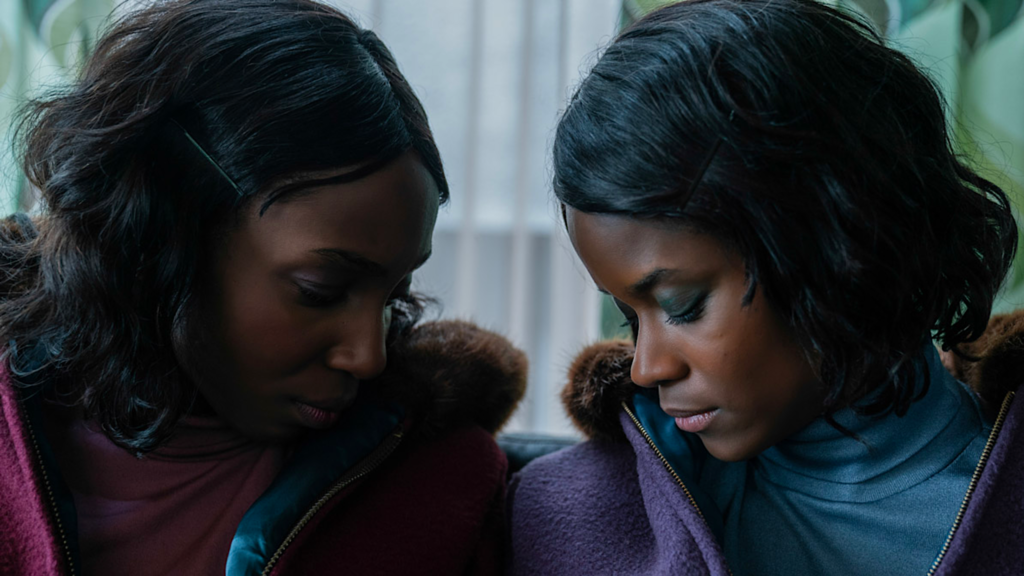Agnieszka Smoczyńska is a Polish film and television writer and director. She is an alumnus of the Krzysztof Kieślowski Film School in Katowice. She is most known for her debut feature film “The Lure” which was released in the U.S. by the Criterion Collection in 2017. It also includes the short films “Aria Diva” (2007) and “Viva Maria!” (2010). She is working on “Deranged,” a science fiction opera with David Bowie’s music.
“The Silent Twins” is now in theaters.
W&H: Describe the film for us in your own words.
AS: “The Silent Twins” is about the love between sisters, something so powerful that it can kill you. The main heroines are identical twins, June and Jennifer Gibbons, two Black girls from Barbados who grew up in Wales, U.K., in the 1970s and 1980s.
June and Jennifer were extraordinary, but ordinary at the same time. Their silence was in protest of the systemic racism they endured at school and in their community, which was largely white. The decision to not speak to anyone except each other excluded them from the outside world, including their own family. They wanted to communicate with the world through written communication, rather than verbal, on their own terms. They have limitless imagination.
The film is not just about them being excluded, but also society’s response to their exclusion.
W&H: What drew you to this story?
AS: The story of June and Jennifer is a universal one, of the deep love between two sisters. However, it’s also unique because it’s a true, complex story with many layers about two extraordinary human beings. As someone who grew up amongst seven sisters, I understand the relationship amongst sisters very well – how there can be powerful and beautiful love but also how toxic it can be.
The screenwriter, Andrea Seigel, through her storytelling, showed their limitless imagination and sense of humor, as well as their inner world versus the outside world. The script showed them as girls who grow into young women, who want many of the same things that we all want – love, family, and success. They searched for all of those things but in their own unique way.
W&H: What do you want people to think about after they watch the film?
AS: I hope that people will be moved and feel more emotionally rich after seeing what I believe to be an inspirational story.
For those people who are aware of June and Jennifer’s story, I hope they’ll take away a different perspective and come to see June and Jennifer as artists, as human beings, with an appreciation for going inside their story and being a part of their world.
I don’t want people to feel any one thing. I hope it will open people up to having conversations about what they’ve seen in the film.
W&H: What was the biggest challenge in making the film?
AS: It was not only a story about artists, deep and inspiring, but also a story of two outsiders located in a culture that I don’t know and their roots — they are from Barbados, originally — that are even more distant from them.
On top of that, we shot the film under conditions of the global pandemic. When Covid hit the U.K., no planes were allowed to depart the U.K. and our insurers started freaking out. I was sure we were not going to make it, but then two special flights were arranged to bring in our cast and crew and we shot the movie entirely in Poland under lockdown. Well, I don’t wish anyone such challenges.
W&H: How did you get your film funded?
AS: This film was made opposite to my previous two productions, which were pure EU productions. If you would ask me to guess what is possible, I would have never advised this way until now.
The movie was initiated by a U.S.-based scriptwriter, who brought onboard U.S. producers (Alicia van Couvering and Ben Pugh). I am Polish and I knew I wanted to be accompanied by Polish talents, and so I brought two more producers from Poland (Klaudia and Ewa), who brought soft money through Madants. After receiving positive feedback from the Polish Film Institute, my producers decided to make the movie a Polish-British official co-production and submit it also for a BFI tax rebate.
The rest came from Anita Gou’s Kindred Spirit and Focus Features, making “The Silent Twins” probably the very first co-production [made with] indie production companies, Polish soft money, and studio involvement.
W&H: What inspired you to become a filmmaker?
AS: I always wanted to tell stories and invent and create new worlds. When I went to secondary school I started to study cinema. And that’s how it started.
W&H: What’s the best and worst advice you’ve received?
AS: “Never assume.”







